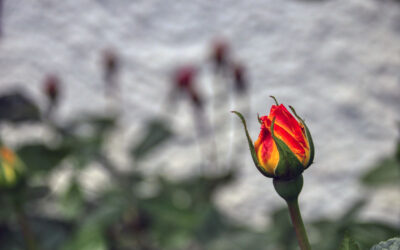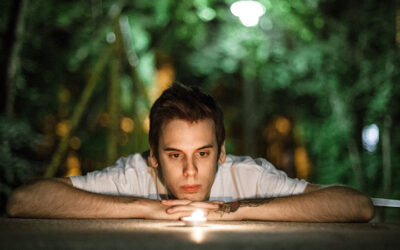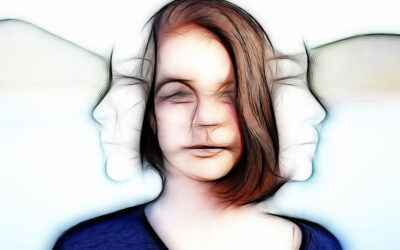Meditation and the Discovery of Our True Nature
Learn how meditation leads to self-realization, why it matters, and how daily practice helps you live with clarity, peace, and compassion.
Why Spiritually Awake People Are Quietly Disappearing from Society [VIDEO]
My Publisher sent me a link to this video this morning. I’m going to post it here, without comment, for those who need it. Feel free to comment.
There Is No Spiritual Awakening
There’s really no such thing as “spiritual awakening.” Spirit doesn’t go to sleep—so it can’t wake up. It’s always here, always present, always aware. Infinite. Unchanging.
Aha!
Enlightenment is only one thing. Salvation is only one thing. Nirvana is only one thing. And that one thing, paradoxically both the simplest and most complex concept in all of spirituality, is this: the realization that you do not exist.
Deconstructing Me
This article challenges the belief in a separate “me” and explores how the mind resists its own dissolution. Through self-inquiry, a practice found in many spiritual traditions, we can question whether we are our name, body, or mind—only to discover that none of these define a fixed self. As this illusion unravels, we realize that the “me” is merely a thought, not an actual entity. The article encourages ongoing inquiry as a path to deeper awareness and enlightenment.
Aware of Being Aware?
This article critiques the commonly used phrase “Be aware of Being Aware” in non-dual teachings, arguing that it is misleading because awareness does not need to be aware of itself. Instead, the article suggests that a more accurate approach is to “focus on being aware,” emphasizing the role of conscious attention in recognizing one’s true nature. By turning inward and disengaging from identification with the mind and external distractions, one can experience awareness as the permanent, unchanging essence of existence. This process aligns with the essence of meditation, which is not limited to formal practice but can be cultivated at any moment.
The Name That Unlocks
This article explores the concept of duality in human experience and how spiritual insight can help us transcend it to perceive the Oneness of existence. I examine the limitations of the term “God,” noting that naming something inherently creates distinction, which contradicts the infinite nature of true Being. However, dualistic thinking can still serve as a bridge to Oneness, and different names for the same ultimate reality can aid in deepening meditation and spiritual understanding. The article encourages experimenting with various terms—such as Consciousness, Life, or Energy—to find what resonates most and enhances one’s spiritual experience.
The Peace of Christmas
In the silence of our being, our true nature is revealed. This silence is the essence of all things we perceive—everything we see, hear, feel, and experience. In this silence, there are no labels, judgments, or concepts. In it, you are not defined by the names you...
No Way To Know
This article explores the inherent limitations of describing spirituality and reality, emphasizing that all human attempts to articulate these concepts are fragmented and incomplete. I compare this limitation to a dog trying to comprehend its owner’s daily activities—an endeavor constrained by the dog’s cognitive capacity. Similarly, human understanding is shaped by personal experience, language, and cultural background, making any description of reality inherently subjective. Rather than seeking complete understanding, the article advocates for embracing a state of “unknowing,” recognizing that reality transcends human comprehension.
Distraction
Illusions of the world consistently capture more of our attention than the Truth itself. This is an inherent aspect of human nature. Truth is eternal, still, and unchanging, whereas illusion is characterized by movement, drama, and constant change. We are naturally...
Random Renaissance Person
This article explores the fleeting nature of human existence by imagining an ordinary person from the Renaissance—someone who lived, worked, loved, and struggled, yet left no lasting trace. Just as their life has faded into obscurity, so too will our own personal histories eventually be forgotten. The article challenges the reader to consider whether our attachments to identity, possessions, and accomplishments are as meaningful as we believe. Ultimately, it questions whether something deeper and more permanent exists beyond the transient nature of life.
Beyond Appearances
This article explores the concept of “spiritual translation,” the practice of looking beyond outward appearances to perceive deeper truths. While the mind relies on logic and physical evidence, it is not always the best tool for understanding spiritual reality. I argue that true perception—what the Bible calls “righteous judgment”—requires seeing past surface-level appearances to recognize the essence of things. The article emphasizes that reality is not as fragmented as it appears; rather, everything is ultimately awareness recognizing itself.


![Why Spiritually Awake People Are Quietly Disappearing from Society [VIDEO]](https://www.barnwoodmonk.com/wp-content/uploads/2025/09/SpiritualPeople-400x250.jpg)









